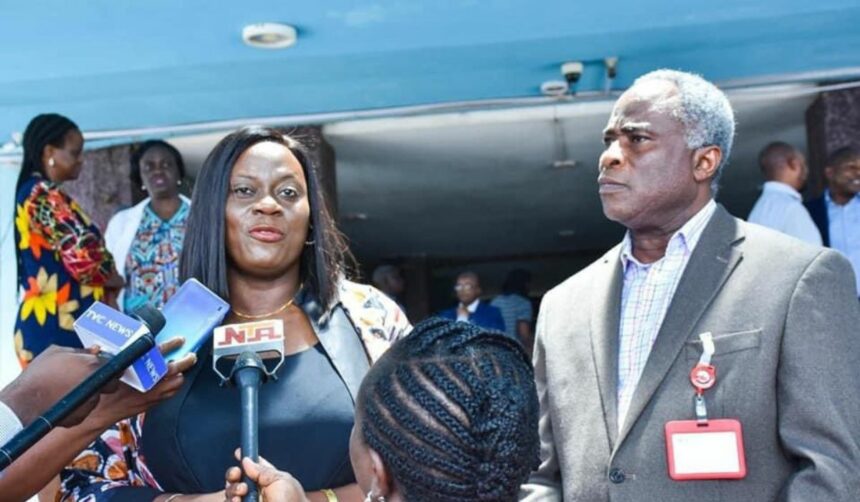The National Agency for the Control of AIDS (NACA) has called upon stakeholders to intensify efforts towards ending the HIV epidemic in Nigeria.
Ahead of the first Nigeria HIV prevention conference scheduled for May 7–9 in Abuja, Dr. Temitope Ilori, the Director-General of NACA, emphasized the importance of accelerating progress in combating HIV/AIDS.
The conference, themed “Accelerating HIV Prevention to End AIDS through Innovations and Community Engagement,” aims to optimize innovative HIV prevention approaches, promote human rights-based approaches, and strategize for increased domestic funding towards community ownership and sustainability of prevention programs.
Dr. Ilori urged stakeholders to unite and collaborate towards achieving these objectives, emphasizing the pivotal role of the conference in advancing efforts to end the HIV epidemic in Nigeria.
She highlighted the importance of exploring innovative approaches and engagement strategies, with a particular focus on the transformative role of young people in driving change.
She said: ”The conference represents a critical milestone in Nigeria’s efforts to combat HIV/AIDS, providing a platform for collaboration, innovation, and strategic planning to accelerate progress towards ending the epidemic.
”Adopting a hybrid format to allow for both physical and virtual participation, the conference will bring together policymakers, academia, representatives from international organizations, NGOs, development partners, media professionals, and others involved in the national response.”
Dr. Leo Zekeng, UNAIDS Country Director, expressed optimism about the conference’s potential impact in curbing HIV infections in Nigeria, emphasizing the vision of zero new infections, zero discrimination, and zero AIDS-related deaths.
He underscored the importance of partnerships across sectors and disciplines, community leadership, and sustained commitment at both federal and state levels to realize this vision.
NACA also highlighted the positive outlook of the U.S. President’s Emergency Plan for AIDS Relief (PEPFAR) regarding the conference’s potential impact.
Funmi Adesanya, the country coordinator, emphasized the importance of prioritizing young people, who constitute a disproportionate share of new HIV infections, and pledged PEPFAR’s commitment to partnering with NACA and the Nigerian government in efforts to end the HIV epidemic.
Meanwhile, the United States Centre for Disease Control and Prevention (USCDC) has empowered 734,000 individuals living with HIV or affected by the disease through its Orphans and Vulnerable Children (OVC) intervention program across 19 states in Nigeria.
Femi Oke, Programme Specialist at CDC Nigeria, shared this achievement during a media conference in Abuja, stressing the program’s focus on empowering vulnerable populations economically and improving their overall well-being.
Oke explained that the OVC program facilitates the creation of saving groups within communities, comprising 15 to 25 individuals who meet regularly to save and borrow for emergencies, paying monthly interest as agreed by the group.










